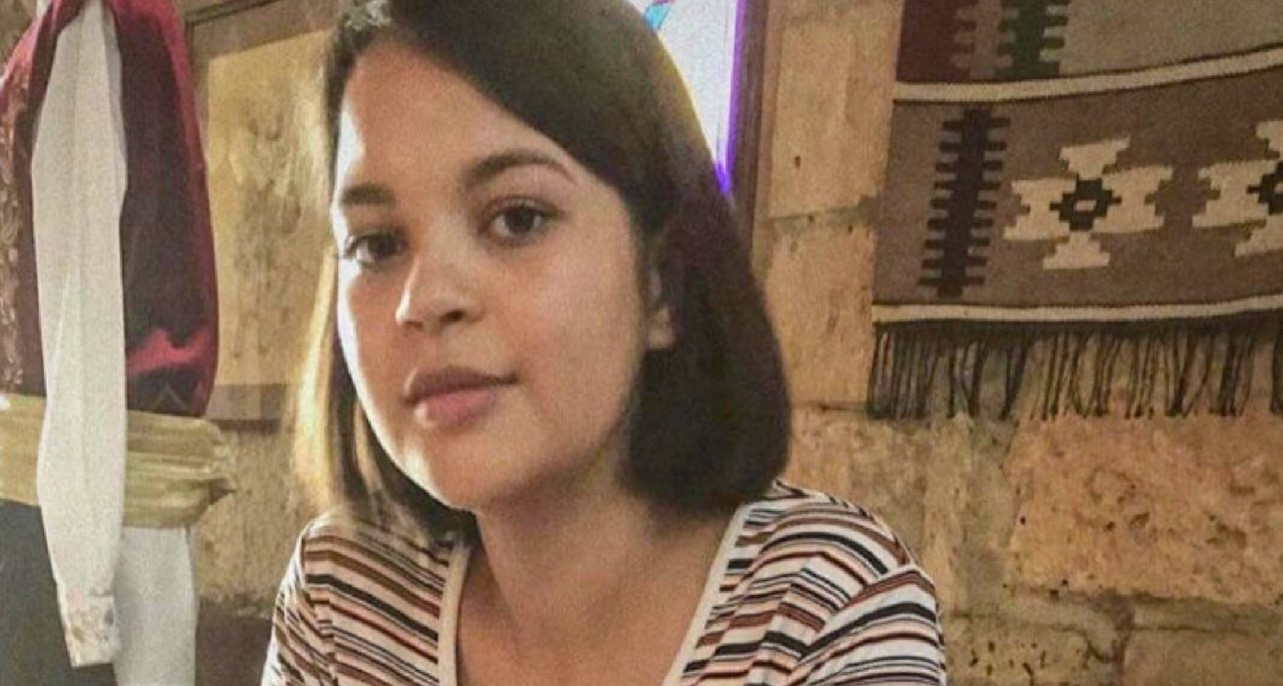FSB behind the torment and endless stream of sentences in Russia against 25-year Crimean Tatar

Russia’s FSB [security service] have removed 25-year-old Leniye Umerova’s passport and other documents, although the administrative charges used to imprison her should have nothing to do with the FSB. This, and yet another term of administrative arrest on preposterous charges in North Ossetia, would seem to confirm fears that the FSB are behind Umerova’s imprisonment and that they are using the time provided by such administrative prosecutions to fabricate serious charges under Russia’s criminal code.
Leniye Umerova, a marketing specialist living in Kyiv, has been imprisoned in Russia for around six months, and is presently held in a police temporary holding unit in Vladikavkaz. Her father, Rezvan Umerov, filed an official demand for information about his daughter’s documents confirming identity and received a written response from Vadym Pliyev, a prosecutor of a district in Vladikavkaz, stating that the documents had been removed by the FSB.
There were already fears that the FSB were behind the administrative proceedings against the young woman. The fact that the FSB have removed her documents is ominous since Russia’s FSB should only be involved in criminal proceedings. Officially, all of Umerova’s prosecutions are on administrative charges, on the basis of protocols drawn up by the police.
The news came shortly after Leniye was, for the fifth time, sentenced (on 26 April, by ‘judge’ Lali Valiyeva from the Sovietsky district court in Vladikavkaz) to another 15-day term of administrative arrest. The pretext was as absurd as the previous four, with the police claiming that she had failed to obey them by supposedly refusing to get out of an official car.
This lawless imprisonment of the young Crimean Tatar is especially brutal since Umerova was hurrying to occupied Crimea to be with her family after her father was diagnosed with cancer in November 2022. Since Russia’s full-scale invasion of Ukraine, there has been no safe access to occupied Crimea from mainland Ukraine, and the young woman had, at the beginning of December, travelled through Bulgaria, Romania to Georgia, from where she planned to cross into Russia, and then occupied Crimea. She was on the Tbilisi – Simferopol coach when she was detained during the night from 3-4 December 2022 at a checkpoint in Northern Ossetia on the Georgian-Russian border. She was told this was “for a further check and conversation”, with the Russian border guards (who are within FSB jurisdiction) taking her Ukrainian internal document, passport and her telephone. It was earlier reported that the Russians had found photos on the telephone of military technology, although these were not photos that she had taken and were widely available on the Internet. It is not clear whether Umerova was targeted because of the photos, or merely because she left Crimea after Russia’s invasion. She completed her higher education in Kyiv and was working there as a marketing specialist for Vovk. Although she had visited her family once a month without any incidents, she had not taken Russian citizenship.
The border guards claimed that they would speak with her the following day, and sent her to the Sova Hotel outside the city. She was taken, by taxi, in that direction, but via a road which is off limits to foreigners, where the taxi was duly stopped by traffic police. This was clearly a set-up to enable the first administrative charge of “infringing the rules for crossing the Russian state border (Article 18.1 § 1 of Russia’s code of administrative offences). A local court found her guilty of this and fined her (the fairly small amount of) 2,000 roubles, as well as ordering her deportation. According to her father, there is no mechanism for organizing such expulsion, and she was simply sent to a temporary holding unit for foreign nationals.
The lawyer, whom her parents found, managed to get the deportation order revoked, with this meaning that there was no longer any requirement for her to be imprisoned in the temporary holding unit. The same court even noted that the young woman did not appear to present any danger to Russia.
She should have simply been released. Instead, she was seized by unidentified individuals as she left the unit. They put a bag over her head, forced her into a car and took her to a district in Vladikavkaz where they dumped her, just in time for a police car to turn up and demand that she come with them to the police station. She tried to find out why, with her question perhaps used as the pretext for accusing her of ‘disobeying the orders of an enforcement officer’. The Leninsky district court promptly ordered a 15-day term of administrative arrest, with a second, identical protocol over ‘disobedience’ drawn up almost immediately, supposedly because Leniye refused to give the officers her phone. A third 15-day sentence was imposed on 27 March, with Leniye taken to the temporary holding unit in Beslan.
On 9 April, a fourth ‘disobedience’ protocol was drawn up, with the 15-day term of administrative arrest this time imposed by ‘judge’ Veronika Kolobkova, from the Sovietsky district court in Vladikavkaz.
Rezvan Umerov has been forced to put his treatment for cancer on hold and, together with his wife, stay in North Ossetia to be close to their daughter and try to secure her release.
The fifth administrative arrest on 26 April, and the first confirmed news of FSB involvement, make it worryingly likely that the FSB are planning some kind of criminal prosecution within their remit, namely ‘spying’, ‘sabotage’, or even ‘terrorism’. They have already used similar methods against another Ukrainian citizen, Oleksandr Marchenko





